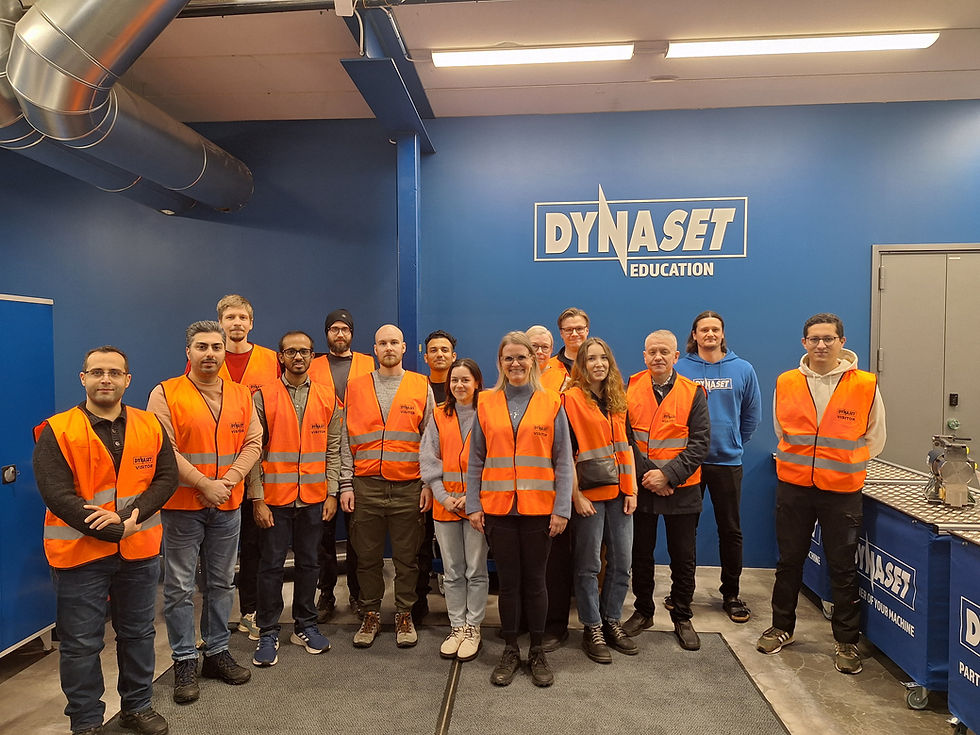Slaying the Dragon – The story of my research topic
- Pekka Laurikainen
- May 27, 2021
- 3 min read
There are many ways to slay a figurative dragon, at least as many as there are such dragons to slay. Among us engineers, these "dragons" are often ones rearing their ugly heads for all of us to see – microplastics drained into the seas or a poor system in managing shared healthcare resources. And oh we go!

On a glorious quest armed with plans, training, and a party of like-minded questers to tackle a somewhat "bite-sized" issue. And sometimes, it proves to be anything but...
Here our brave party of engineers usually divides. Many people, recognizing the "dragon" too big to slay with the comprehension at hand, reorient themselves towards a more manageable foe to tackle. You could call these people as "the sensible ones".
But then there are the ones who feel the call of the unknown which is nothing but a hint from behind the horizon of current understanding. These ones bravely (and/or stupidly) dive down the archetypal rabbit hole, as engineers are a bit unprepared to stand in the world of fundamental natural sciences.
The once-mighty tools of engineering have proven flimsy approximations in this strange realm that both break and defines the rules that once held you firmly standing on your feet. And as you've probably guessed, I am one of these poor sods ignoring all the warnings and diving deeper into my topic.
The research topic
Right, that is what I was supposed to write about. The topic: "The aging of interfaces in fiber-reinforced polymer composites". Sounds like a pretty normal Ph.D. topic, doesn't it?
How are the properties of a material degrading over time from the point of view of a specific
component of the material? That was the initial thought.
Fast forward one from the Master's thesis and about a year of further orientation into the topic, and we've answered a few questions only to form over twice more questions that we set out with. The biggest among them is: what exactly is the interface? Definitely not an unfamiliar term in the composites industry.
It's been talked about and studied for decades. So it should be pretty clear, right?
There is no short answer to that...
Down the rabbit hole, we go.

What I've actually been working on is finding ways to study this aforementioned interface - or interphase as we like to call it. As it is a component that only exists in the presence of the two other components surrounding it, it is not easy.
Seeing it is practically impossible, and it cannot actually be measured directly. Fortunately, some clever new measurement techniques and modeling approaches are starting to slowly unravel the mystery.
Unfortunately, this also means that my story ends with the conclusion that I won't "slay the dragon" I set out for.
Small steps count
My quest has turned out to be something quite different. A quest for knowledge. There are plenty of "lesser dragons to slay" along that path as well. I am hopeful that my story contributes to the original goal one day.
This is not an unfamiliar type of situation in stories. The hero's journey story archetype tends to have a mentor character – the wise wizard who helps the protagonist win the foe he couldn't win himself. Maybe that will be my role in the future of this particular topic.
To be totally fair, that is what most researchers do on some level or another. Most of the problems we tackle are just smaller parts of a larger problem.
For example, the microplastics issue I mentioned earlier is definitely being tackled on multiple fronts rather than being a single "dragon" for one researcher or team to face.
So do not fall into despair if the path feels long. I have less than a year to go and it still feels like it will never end. But taking a step back and looking at what's already been done helps to see that a lot of the work has been accomplished already.
You just have to keep taking those small steps towards the ultimate goal and you'll end up there eventually. And if the road deviates, the "there" you end up in might just turn out to be much more satisfying than the one you set out for.
Pekka Laurikainen
Doctoral researcher



